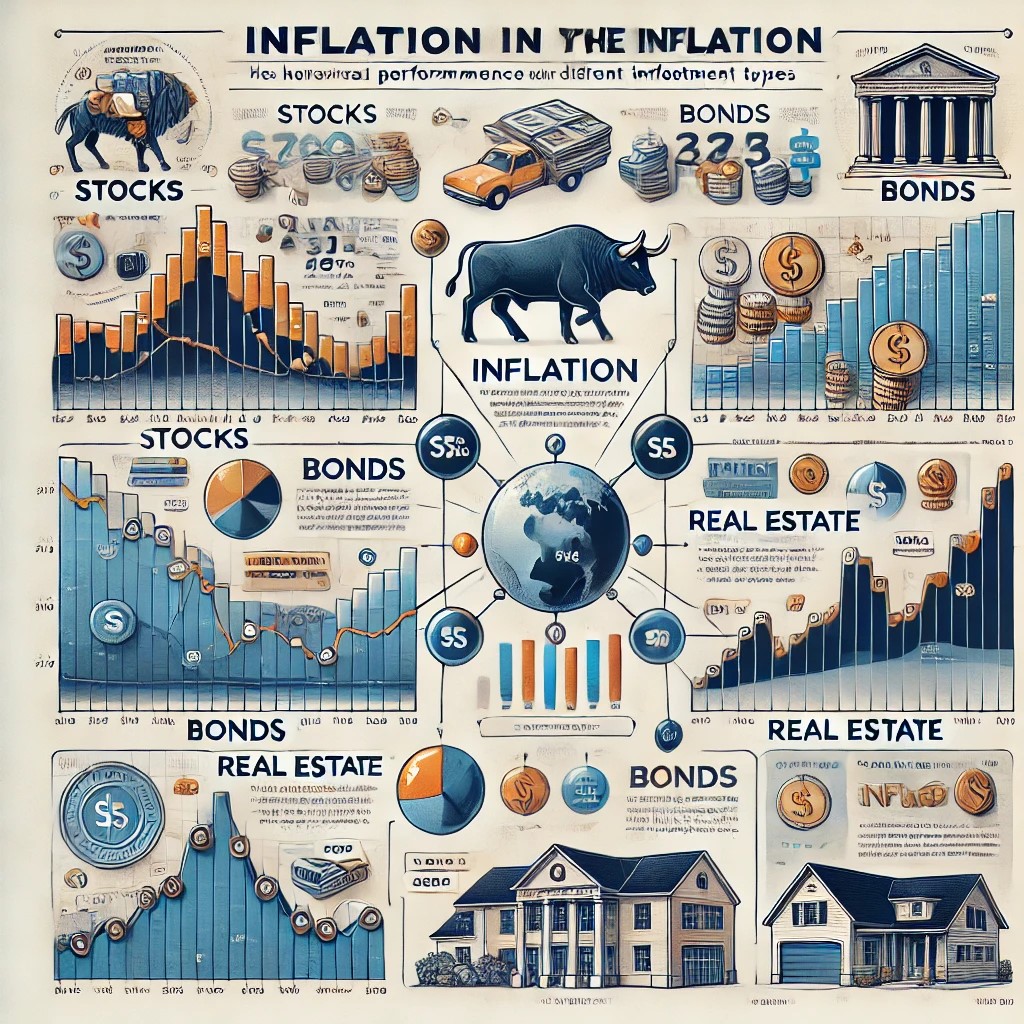Inflation is a critical economic factor that affects investment decisions and outcomes. As the general price level of goods and services rises, inflation can erode purchasing power and influence various asset classes in different ways. Understanding how inflation impacts investments is essential for both individual investors and financial institutions. This article explores the current trends in inflation's impact on investments and anticipates future shifts in the financial landscape.

Current Trends Influencing Inflation and Investments
In recent years, inflation rates have fluctuated, influenced by factors such as supply chain disruptions, energy prices, and monetary policies. These fluctuations have a direct impact on investment portfolios. Generally, inflation is seen as a negative force for fixed-income investments like bonds, as it diminishes the real returns that investors can expect from their fixed payments. For example, if inflation rates exceed the interest rate on a bond, the purchasing power of the interest payments declines.
Conversely, stocks have historically had a more complex relationship with inflation. While moderate inflation can indicate a growing economy and potentially lead to higher corporate earnings, high inflation can squeeze profit margins and lead to economic slowdowns. Equities can provide a hedge against inflation, but this depends significantly on the nature of the inflationary environment and the types of stocks in question.

Real Estate and Commodities as Inflation Hedges
Real estate and commodities are often considered effective hedges against inflation. Real estate properties, particularly residential rentals, can potentially offer protection against inflation, as landlords may increase rents over time, which can align closely with inflationary trends. Similarly, commodities like gold, oil, and other raw materials often see their prices rise with inflation, making them attractive during times of high inflation.
The Role of Central Banks
Central banks play a crucial role in managing inflation through monetary policy. By adjusting interest rates and using other monetary tools, they can influence economic activity and inflation expectations. For investors, the strategies of central banks are critical to consider, as shifts in policy can significantly affect different asset classes. For instance, when a central bank raises interest rates to combat inflation, bond prices typically fall, and the broader economic impact can also depress stock market returns.

Future Predictions: Inflation and Investment Strategies
Looking forward, the expectation is that inflation will remain a key concern for investors. Many analysts predict that the era of extremely low inflation may end, driven by continued supply chain challenges, labor market shifts, and expansive fiscal policies. Investors might increasingly turn to inflation-protected securities, such as Treasury Inflation-Protected Securities (TIPS) and floating rate bonds, which adjust their payouts based on inflation trends.
Conclusion
Inflation significantly impacts investment decisions and strategies. As the economic environment evolves, understanding inflation's implications will be crucial for achieving desired investment outcomes. Investors must stay informed about inflation trends and adjust their portfolios accordingly to manage risks and capitalize on opportunities presented by inflationary changes. This proactive approach will be vital in navigating the uncertain waters of future financial markets.


